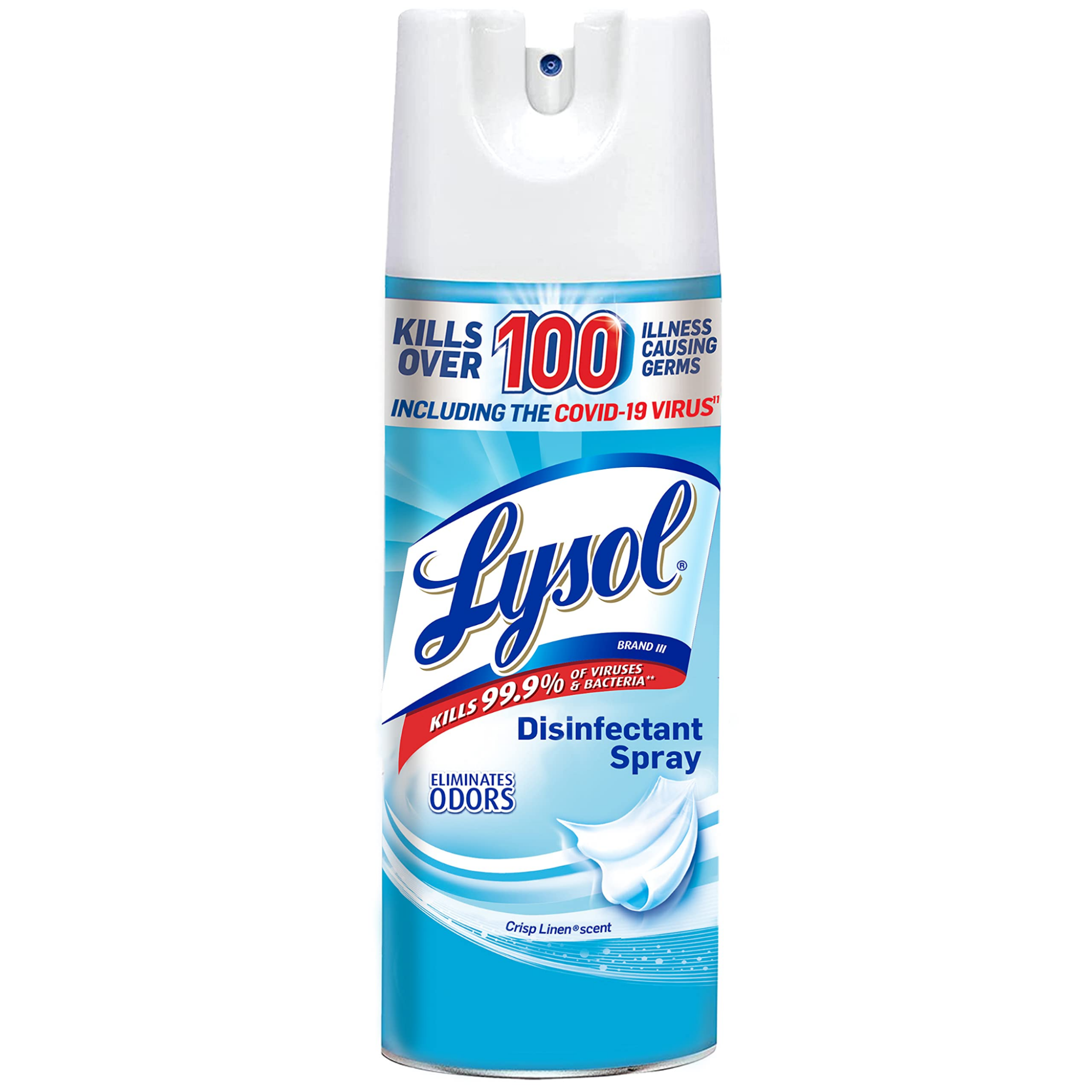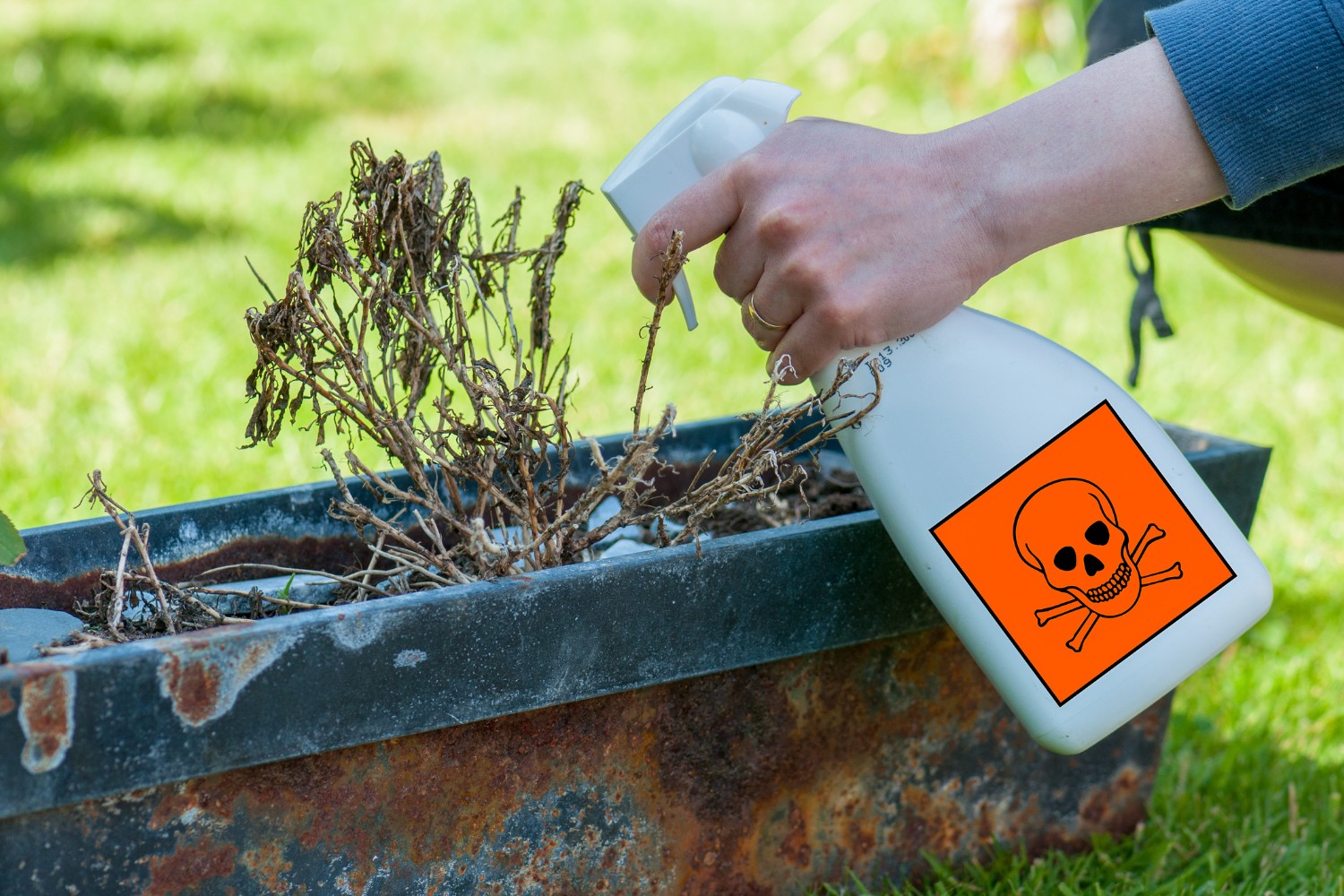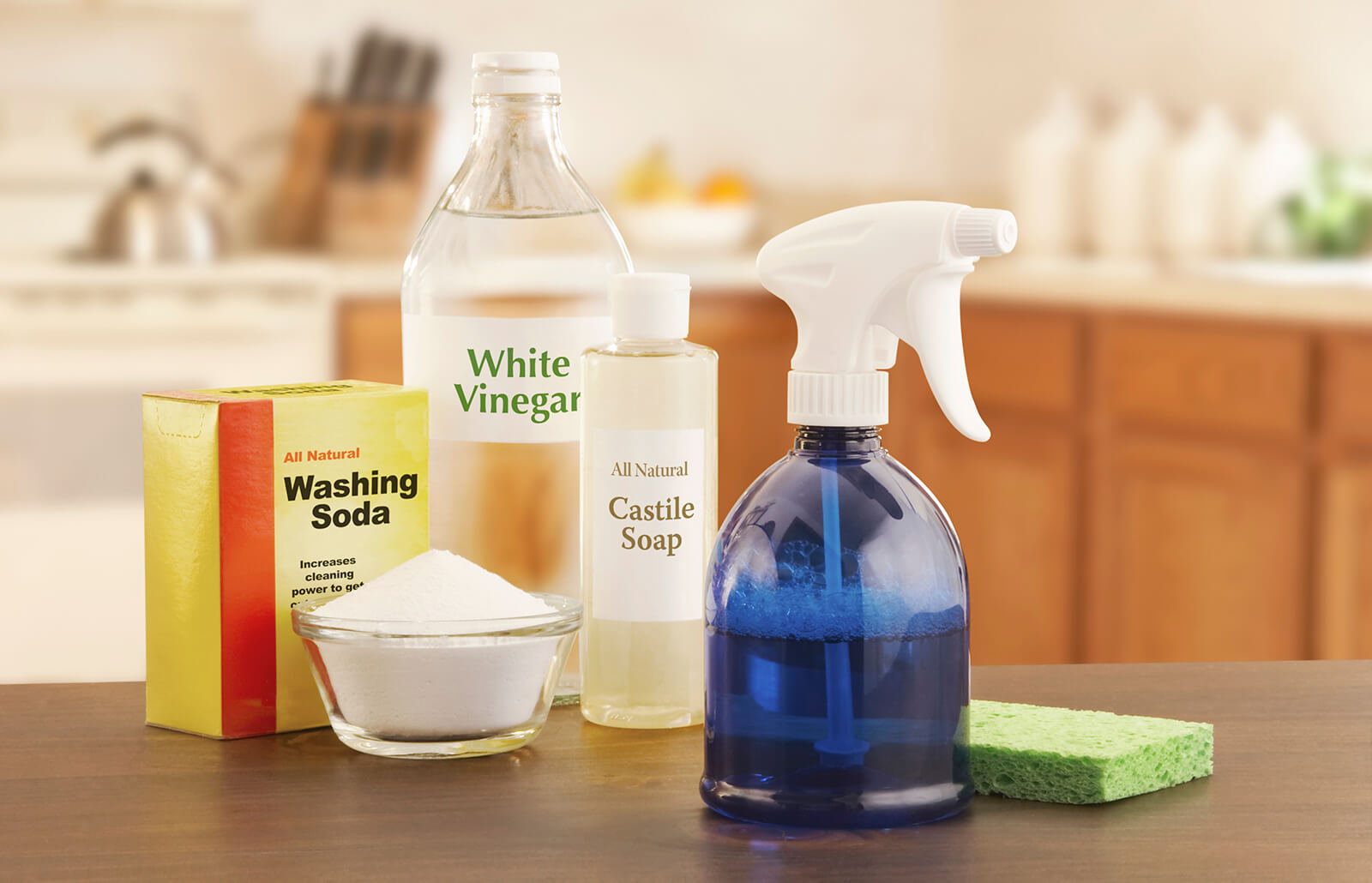If we talk about disinfectants, the first thing that comes to mind is Lysol, right? It’s a strong alcoholic disinfectant that claims of killing 99.9% of germs. But you just can’t use toxic Lysol for killing germs, especially on living things.
So, Is Lysol Toxic to Plants?
Yes, Lysol is quite toxic to the plants and it can kill the plants directly. Lysol is a strong chemical substance that is used for killing germs. But for killing any kind of germs or parasites of plants, you can’t spray it on them. And even if you spray it accidentally, then you need to take immediate steps to save the plant.
That sounds interesting, right? Well, there is a whole article on this waiting for you in the following. So if you got some spare time in hand, you may give this useful article a read.
Is Lysol Toxic to Plants?
Yes, Lysol is toxic to plants. Disinfectants are very common in any household. And among all the disinfectants, Lysol is the most common one and is found in every house.

Lysol is a multipurpose disinfectant that can be used on almost everything in a house for killing germs. It claims to kill 99.9% of germs from things. But in terms of plants, it can directly kill them as well.
Lysol has a very strong alcohol content. It has both propane and ethanol. Other than that ammonium hydroxide is also there and all these chemicals are very strong for any kind of plant.
What to Do If You Spray Lysol Accidentally On Your Plants
As we already know Lysol is a very strong substance for any kind of plant. So if you accidentally spray Lysol on any of your plants, then you need to take steps immediately if you want to save the plant.

You should follow the following instructions properly to minimize the damage to the plant as much as possible-
Step 1:
Remove the plant from the area immediately where you have sprayed on it. If there is any other plant nearby then consider those plants as the affected plant as well.
Step 2:
Make sure you take the plants to a well-ventilated place where there is abundant air. The exposure would help the disinfectant to dissolve in the air.
Step 3:
Now you need to clean the tree carefully under runny water. Rinsing is a very important step so you have to do it carefully. You have to use a gentle stream of water to rinse the plant carefully.
Do not forget to rinse the soil with the leaf. And make sure you have cleaned as much area as possible.
Step 4:
After rinsing both the soil and the plant, you can go for repotting the plant. That way you would be able to ensure that there is no presence of Lysol in the soil.
Step 5:
Finally while repotting your plant, make sure you choose fresh and new soil. The pot needs to be larger enough according to the plant with enough drainage system.
All these processes would be helpful if you just sprayed a bit of Lysol and you could realize the consequences immediately. But if you have put a lot of Lysol and the tree is already showing the effect, then you need to work differently.
First, you have to get rid of all the damaged and affected leaves by cutting them off. So that the leaves can regrow. And after that put fertilizer on your plants properly so that it can recover easily from the damage.
What Are the Natural Alternatives of Disinfectant For Plants
Your plants and trees are not free from the effect of bacterial and fungal infection. So disinfectant is a necessity for them as well. But direct chemical disinfectants are harsh to them and can kill them directly.

So it is best to look for natural disinfectants so that you can kill the germs as well as your plant stays healthy.
Hydrogen Peroxide:
Hydrogen peroxide is a very good disinfectant that is completely safe for plants. Just take a spray bottle and mix one portion of hydrogen peroxide with two portions of water. Now you can use the mixture on the affected area. Make sure you shake the bottle before using it.
Lemon:
You would be surprised to know lemon is an amazing disinfectant. Though it is less effective compared to vinegar but it works really well as a disinfectant. Just spray it on the affected area and you will notice the difference.
Hot Water:
You can use hot water as an antibacterial agent but you have to be careful about the temperature. The temperature should not exceed 150 degrees Fahrenheit. And the standard temperature range is 140-150 degrees Fahrenheit.
Tea Tree Oil:
Tea tree oil is a very good disinfectant that can be used in your tree in a diluted form. Combine 10-20 drops of tea tree oil with two cups of water. Keep the mixture in a spray bottle and use it in the affected area.
But every time before using it, don’t forget to shake the bottle.
Vinegar:
Vinegar is a good form of disinfectant but you have to make a mixture first. Mix equal amounts of water and vinegar in a spray bottle. Then you are ready to use it as a disinfectant in the affected area.
Vodka:
Alcohol always works best as a disinfectant. But not all type of alcohol is suitable for plants. Vodka is one of those alcohols that can be used as a disinfectant. This works best for fungal infections or molds.
For the best result, buy vodka with 100-proof and use it religiously.
Bonus: You can check our guide to knowing how you can protect your watermelon plant from the effect of ants.
How to Protect Your Garden From Harmful Chemicals
These are the few tips, following which you can protect your garden from Lysol-
- Keep your garden and plants away from the place where you use disinfectant
- Before using any kind of chemical or fertilizer, make sure you are aware of the use of it
- Read the labels on the bottles of the chemicals to know the ingredients of it
- Avoid using insecticides unless the natural ingredients fail to recover
- Take precautionary steps to avoid any kind of infections by parasites
Hey, if you want to keep your garden chemical pesticides free, you may check this video:
Also, if you are curious about whether ants are eating your onion plants, we have got you covered.
Frequently Asked Questions (FAQs):
Are disinfectants harmful to plants?
There are some disinfectants that are highly poisonous to plants. These will directly kill the plants. So before using the disinfectants, make sure your plants can tolerate them. Hydrogen Dioxide and Peroxyacetic Acid, are two disinfectants that are safe for your plants.
What type of chemical is Lysol?
Lysol is a 50% cresol solution on saponified vegetable oil. Thymol is an alcohol obtained from volatile oils of Thymus vulgaris, Monarda punctata, or Trachyspermum ammi. This thing is colorless but has a pungent taste and smell. Lysol as a disinfectant is really powerful and works great in killing germs. But this is an absolute no for plants.
Is Lysol safe for the skin?
No, Lysol is not completely safe for the skin, and it is alarming for the eyes. So you should never spray lysol on your skin, eyes, or clothing. It can cause severe irritation to the skin. So if you ever come in direct contact with Lysol, make sure you clean that place thoroughly under runny water with soap.
Final Words
We hope this article was helpful for you regarding Is Lysol Toxic to Plants. One last tip, no matter what kind of disinfectant you are working with, make sure you clean your hands properly after using.
That is it for now. See you soon with something more useful.
Have a great day!
- Why Are There Still No Tomatoes in My Tomato Plants? Let’s Fix the Issue! - July 13, 2023
- Water Propagation White Stuff on Roots: Everything You Should Know! - July 11, 2023
- String of Dolphins Drying Up: Solved! - July 11, 2023
